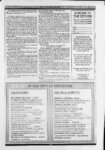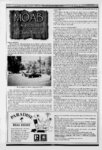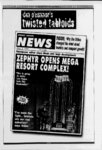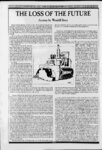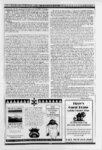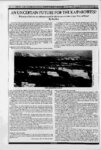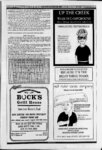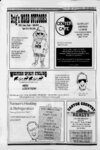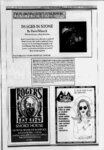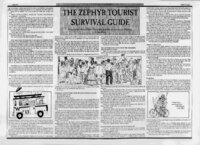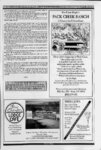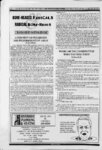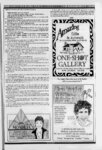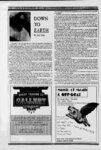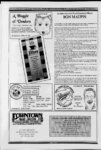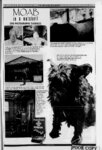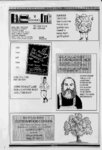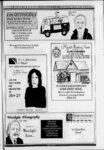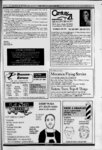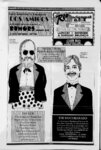| OCR Text |
Show Now it has become urgent that the aense of community should include the world, that It should come to be a realization that all men ultimately share the same place, the same nature, and the same destiny. But this most necessary feeling that the world is a neighborhood cannot, I think, be expected to grow among the crowds of strangers that fill the cities. If it is to be hoped for at all, it is to be hoped for among the people who have had the experience of being involved responsibly and knowingly, and at some expense of their feelings and means, in the lives of their neighbors. fashion of antipathy, I will venture to suggest that the best Against a model we have of a community is still the small country town of our agricultural past I do not mean that this was ever a perfect community, or that it did not have serious faults, or that it can be realistically thought of as a possibility that is still before us. But with its balance of variety and coherency it is still more suggestive of the possibility of community, of neighborhood, than anything else we have experienced. Whatever may be said against it, it did bring into the condition and the possibility of neighborliness a number of people who varied a good deal In occupation, income, education, and often in opinion. Different sorts of people, different kinds of experience and levels of educations were in constant touch with each other, and were taught and disciplined by each other. Knowledge of neighbors was encouraged and cultivated, by the natural curiosity that produced either gossip or understanding, and also by the caution and interest of business dealings. A merchant or banker in one of those towns, dealing constantly with the problem of whom to credit, would in a lifetime gather up an authoritative knowledge of literally thousands of people. He gained from his business, in addition to his living, a profound and various experience of other men. Though it was not inevitable; it was certainly possible in such a community for the life of a merchant or lawyer or teacher or doctor to be inspired and disciplined and even ennobled by a precise sense of its relation to other lives, its place among them, its usefulness and duty to them. Those places did not have the dead look of modem suburban towns in which the people live but do not work. The population was reasonably stable. People expected to remain in the same place all their lives, and often they did. In those communities it was always at least possible that charity could be personal, and that possibility enforced the likelihood that it would be. A man whose neighbor was hungry would give him something to eat because it was the natural thing to do. He knew who his neighbor was. And he felt without needing to be told by a sociologist that the condition of his neighbor was a reflection on him. Because he knew his neighbor it was possible for him to care about him, or be his friend, or love in any of our public places, to manifest and convey that awareness-- a language that would live upon the realization that no man can act purely on his own behalf, not only because it is not desirable that he should do so, but because it is in reality not possible. And it would include the place, the land, itself. For man is not merely "in" the world. He fe, he must realize and learn to say or be doomed, part of it The earth ha is made of he bears in trust a long-standi- Publisher's note: I'd like to express my eternal gratitude to Wendell Berry for graciously giving his consent to print excerpts from "The Loss of the Future;" one of book The Long Legged Haute. What I find a collection of essays in his now most remarkable about the story you just read is that it was written in 1969; if anything, his insights are even more striking today. Wendell Berry is the author of 32 books of fiction, poetry and essays, including Sabbaths; Sex, Economy, Freedom & Community; The Unsettling of America, and a wonderful book of poetry. The Country of Marriage. His most recent book of essays, Another Turn of the Crank is available at Moab bookstores. Mr. Berry lives on a farm in Henry County, Kentucky. out-of-pri- nt JS fANYHKh AN1TQ py Lliynr nmjm j WORLD REKNOWN SOUND & LIGHT SHOW! Pop information call , 259-526- 1 : ...and exclusively representing the striking Canyonlands photographs of master photographer Christopher Brown him. But the ideal community would include not just the living; it would include the unborn. It would be aware; with a clarity and concern which the best of us have hardly imagined, that the living cannot think or speak or act without changing the lives of those who will live after them. There would be a language, not yet spoken Reading Autographing FRIDAY MAY 24 7PM Leslie Kelen 6 Davin Sucec authors of: SACRED IMAGES A Vision of Native BOOKSTORE P.O. BOX 387, 83 N. MAIN MOAB, UTAH 84532 (801) 259-515- 4 THE COMMUNITY BOOK STORE FOR ALL YOUR NEEDS: Maps Guidebooks Green Titles Western fiction Poetry Womens issues Conversation Mystery Mailorders Special Orders Gift Advice Good company Philosophy OPEN SEVEN DAYS A WEEK 9 AM TO 9PM I udUri MUM American Rock Art |


